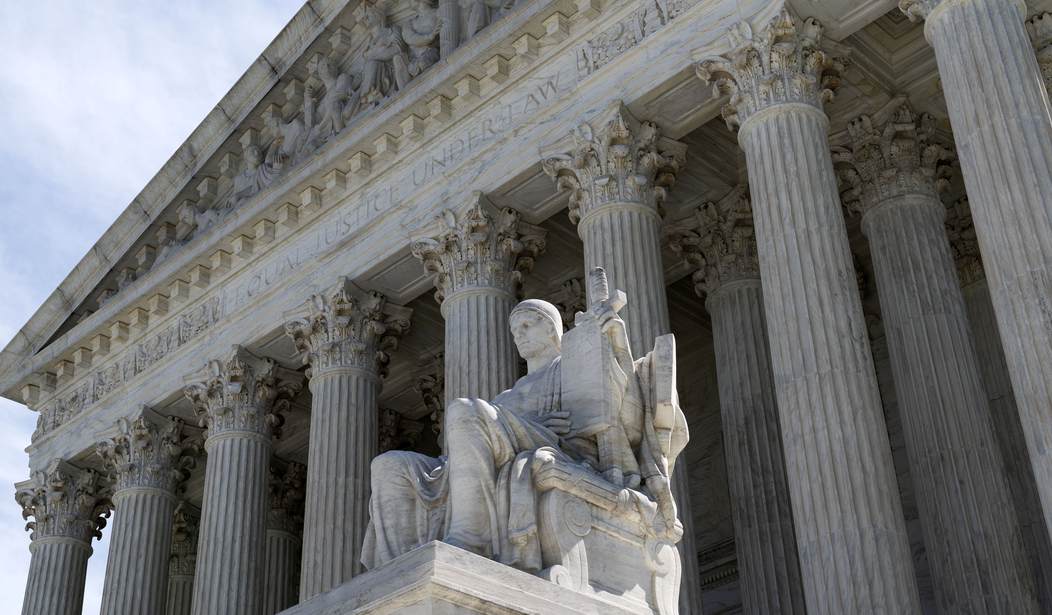Imagine for a moment that a reigning political party in one state could bully through a law that would prevent everyone but themselves from gaining access to public information that would benefit campaigns of all kinds — charitable, religious, political, etc.
That party — and only that party — would have the power to suppress the First Amendment rights of any opponents, perceived or imagined, as well as the people it prevented from being contacted with information.
It’s not a nightmare.
That’s exactly what happened in Washington state, and if it’s allowed to stand, the tactic will undoubtedly spread to other states across the country in an effort to silence opposing voices.
It says everything you need to know about SEIU — and by extension, all public-sector unions — that its leaders look at individuals earning a modest living by selflessly caring for a low-income friend or loved one and think: “How can I cut myself in for a piece of that action?”
The money, that is. Not the responsibility.
Under a federal program administered by Medicaid for decades, in-home caregivers and daycare providers can receive a regular stipend to compensate for the time spent performing duties they would otherwise have undertaken for free. Meanwhile, the arrangement also makes sense for Medicaid because it allows low-income Americans dealing with life-altering disabilities to remain at home instead of requiring more expensive care in an institution.
On paper, it’s a government program that benefits everyone. Or at least it did until the early 2000s, when states lacking right-to-work protections began to classify Medicaid-paid caregivers as public employees — meaning they were subject to the same mandatory union membership and dues requirements as teachers, prison guards, and thousands of other government workers.
Best of all — from the unions’ standpoint, that is — homecare providers, by definition, don’t go to work at a public building every day or interact with their fellow government employees. Consequently, many — maybe even most — didn’t even realize they were handing a labor union a big chunk of their paycheck in exchange for its promise to do little or nothing.
It would have been the perfect crime except for one thing: It was perfectly legal.
That began to change in 2014, when the U.S. Supreme Court, in Harris v. Quinn, ruled that taxpayer-compensated caregivers and daycare providers could not be considered full-fledged public employees, and thus could opt out of their union.
But because of the same limitations, most never heard about that, either.
And that’s just the way the unions hoped things would stay.
In Washington, where prior to 2014 individual providers had been forcibly represented by the Service Employees International Union (SEIU), one caregiver responded to Harris by trying to form a competing union — one that would actually provide services in return for the dues it confiscated. But in order for the new union to receive state recognition, a majority of caregivers would have to approve the change.
Unfortunately, SEIU was able to block access to their contact information — which it had no problem obtaining for its own organizing purposes — by filing a lawsuit.
Another Washington caregiver ran up against the same treatment when she attempted to create a newsletter to educate her peers about Harris and other industry news items SEIU didn’t think they should know.
A third Washington caregiver tried to access the publicly available contact information of his fellow care providers so he could conduct grassroots outreach to make his peers aware that they could resign their SEIU membership and keep that much-needed dues money in their own pockets or going to care for their loved ones. That caregiver, Brad Boardman, was working with the Freedom Foundation to launch a multi-faceted outreach program to inform the state’s care providers they had a choice in union membership.
This outreach attempt seemed to be the final straw for the public-sector unions representing Washington care providers, and they embarked on a campaign of their own to censor these caregivers once and for all.
In 2016, in cahoots with other labor organizations, SEIU authored, sponsored, and funded a ballot measure that would exempt union-represented caregivers from the state’s public information requirements.
But just to keep voters from discovering its true purpose, Initiative 1501 was given a deceptive ballot title and promoted as legislation to crack down on identity theft.
And even though virtually every newspaper in the state editorialized against it, voters ultimately approved 1501 by a wide margin.
In response, the Freedom Foundation filed a lawsuit of its own on behalf of these Washington care providers, including Boardman, who has spent decades caring for his disabled sister-in-law and was among the first to opt out of SEIU when the Harris ruling made it possible.
By its actions, it’s crystal clear the union had no interest in providing a meaningful service to its membership. All it wanted was to choke off access to their contact information and suppress the plaintiffs’ First Amendment rights to express their views and inform their colleagues of their rights.
And the ballot measure SEIU created to cover its tracks is unconstitutional because it denies the Freedom Foundation and the plaintiffs the same information the union has access to solely on the basis of political ideology.
The lawsuit, Boardman v. (Washington Gov. Jay) Inslee, et al, didn’t get much traction in the state’s lower courts and lost a split decision at the 9th Circuit Court of Appeals in January.
Undaunted, Freedom Foundation attorneys in May asked the U.S. Supreme Court to consider the case during its upcoming session.
A decision is expected in late September.
By agreeing to hear and voting correctly on Boardman, the justices have a unique opportunity to erect an important safeguard to the First Amendment rights of the nation’s public employees while simultaneously reinforcing earlier decisions like Harris v. Quinn and its successor in 2018, Janus v. AFSCME, whose aim was to roll back the influence of public-employee unions over the governing process at every level.
Jeff Rhodes is the vice president of news and information for the Freedom Foundation.












Join the conversation as a VIP Member